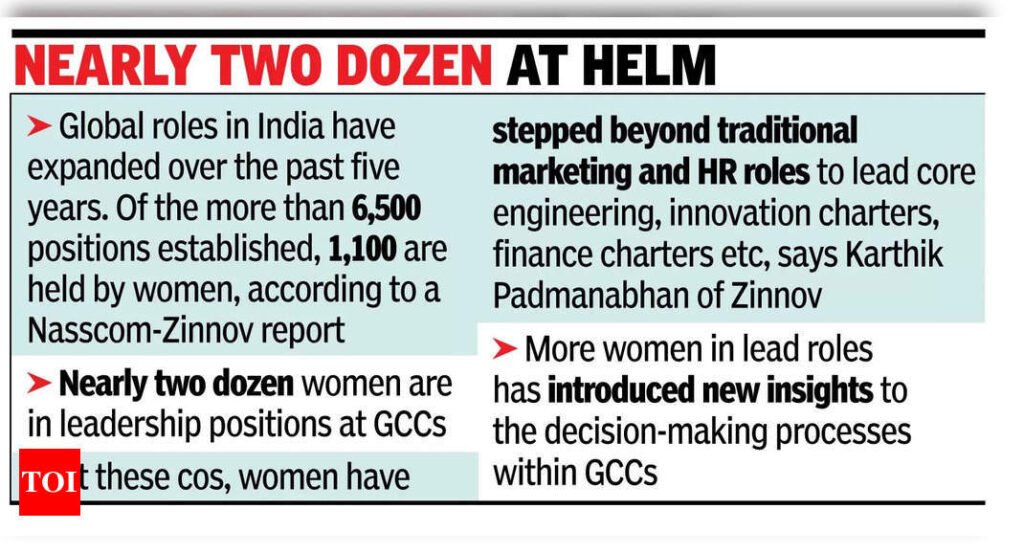Women leaders script India’s GCC story

BENGALURU: India has witnessed a rising trend of women taking up leadership roles in global capability centres, with many organisations choosing to place them at the helm of their GCCs located in India. The move has not only expanded the pool of women role models but also introduced new insights to the decision-making processes within these entities.
Nearly two dozen women leaders lead the charge at GCCs.These include Lalitha Indrakanti, CEO at Jaguar Land Rover technology & business services India; Sirisha Voruganti, CEO & MD, Lloyds Technology Centre India; Uma Ratnam Krishnan, MD of Optum India; Mamatha Madireddy, MD and head of HSBC India Global Service Centres; Kalavathi GV, executive director and head of global development centre at Siemens Healthineers; and Anuprita Bhattacharya, head of Merck IT Centre.
“Today, the rise of women leaders and their contributions, specifically in GCCs, were clearly visible. Women were not just participants but increasingly became key decision-makers, driving innovation and inclusive cultures. They brought unique leadership styles that emphasise collaboration and resilience-qualities critical in today’s complex business environment,” Indrakanti said.
However, biases persist. Sreema Nallasivam, CEO of Metro Business Solution Centre, shared her experiences of facing blatant biases during the early stages of her career. She recalled an incident where a senior woman leader made a remark that highlighted the prejudices she encountered, “You’re a woman, you’re young. Neither one is a compliment – whether I’m a woman or young should not matter,” she said. Nallasivam also recounted a time where a colleague suggested that her success was attributed to factors unrelated to her skills and qualifications, saying “if he also wore a short skirt, he would become a director too” – revealing deeply ingrained gender stereotypes and discrimination prevalent in the workplace.
In another instance, Nallasivam accompanied her team of seven direct reports, all European men over 50, on a trip to Pune for a hiring drive. There, she was frequently mistaken for the team assistant, admin assistant, or HR manager, despite her actual role.
Despite the challenges, women leaders have continued to shine at GCCs. A Nasscom-Zinnov report showed that over the past five years, global roles in India have expanded significantly, with more than 6,500 such positions now established. Interestingly, this includes 1,100 women leaders holding global roles.







